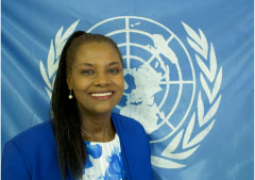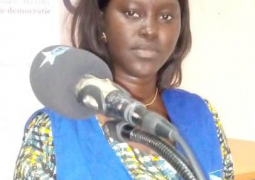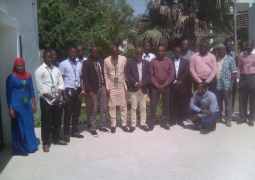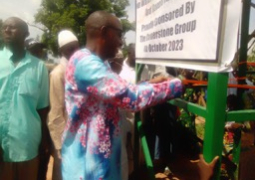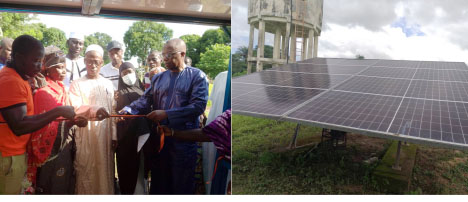
This solar water project, worth US$50,000, was a grant from the Indian government through the International Solar Alliance (ISA) based in India.
ISA is a collaborative international platform for increased deployment of solar energy technologies as well as a means of bringing energy access, ensuring energy security thus driving its transition in its member countries.
The Ministry of Petroleum, Energy and Mines is the Gambian partner institution of the International Solar Alliance, managing all their projects including solar water pumping systems in close collaboration with the Ministry of Agriculture.
Local community elders in both communities were overwhelmed with joy and appreciation, further thanking ISA and the Ministry for initiating such a life-changing project in their various communities.
However, elders in the two communities also lamented some of their challenges, which they say, includes animal intrusion into their gardens.
Vincent Mendy, Managing Director, Unique Energy, a company contracted to do the technical and engineering work, commended the two communities for their cooperation during the work.
He expressed optimism that with the quality of work delivered at the two sites, women can now access water without going through any drudgery and enhance their productivity.
Kebba Tumani Sanneh, National Assembly Member for Foni Jarrol, underscored the importance of water and for providing rural women with this life changing project.
He disclosed what local women went through in enhancing their productivity, supporting their respective families and also paying their children’s school fees.
In a statement delivered by Momdou B. Sarr, an adviser to the Minister for Petroleum, Energy and Mines on behalf of the minister at a separate event held at both sites, Sarr stated that ISA support to both communities is more than an investment in new technology, acknowledging that it is an investment in health, wellbeing and economic growth of every family in the two communities.
He reminded that water is life and in spite of this, access to water has been a major challenge in many rural communities, forcing women and girls to undertake the very laborious work of lifting water from deep wells for their crops in their horticultural gardens.
The physical struggles not only affect daily living but also limit agricultural productivity, which is the backbone of many families in the country.
“With the installation of these solar water pumping systems, which derive all its energy from sunlight, we in The Gambia are blessed in with abundance, we now have a sustainable solution that brings accessible water closer to your horticultural gardens.”
Sarr acknowledged the contribution of women in enhancing and alleviating the plight of families in rural settings, noting that they play a lead role in empowering communities.
“Women are no doubt the pillars of our rural communities, and by empowering them with this new technology, we are empowering an entire community. I therefore, believe that we will see improved agricultural activity within this community, better health outcomes and a future where young girls can spend more time in schools rather than fetching water from deep wells or unhygienic sources.”
Solar energy, he added, is clean and renewable and by using this type of energy, people are reducing resilience on fossils fuels and combating climate change.
For his part, Baba Galleh Jallow, deputy governor of West Coast Region, described the event as a momentous one that symbolises a significant step forward in her collective effort to ensure water is available to all.
“As we embark on this journey, let us reaffirm our commitment to fostering innovation, collaboration and inclusivity in all our endeavours. Together, we have the power to transform challenges into opportunities and to create a future where every Gambian has access to clean drinking water.”
Read Other Articles In National News
